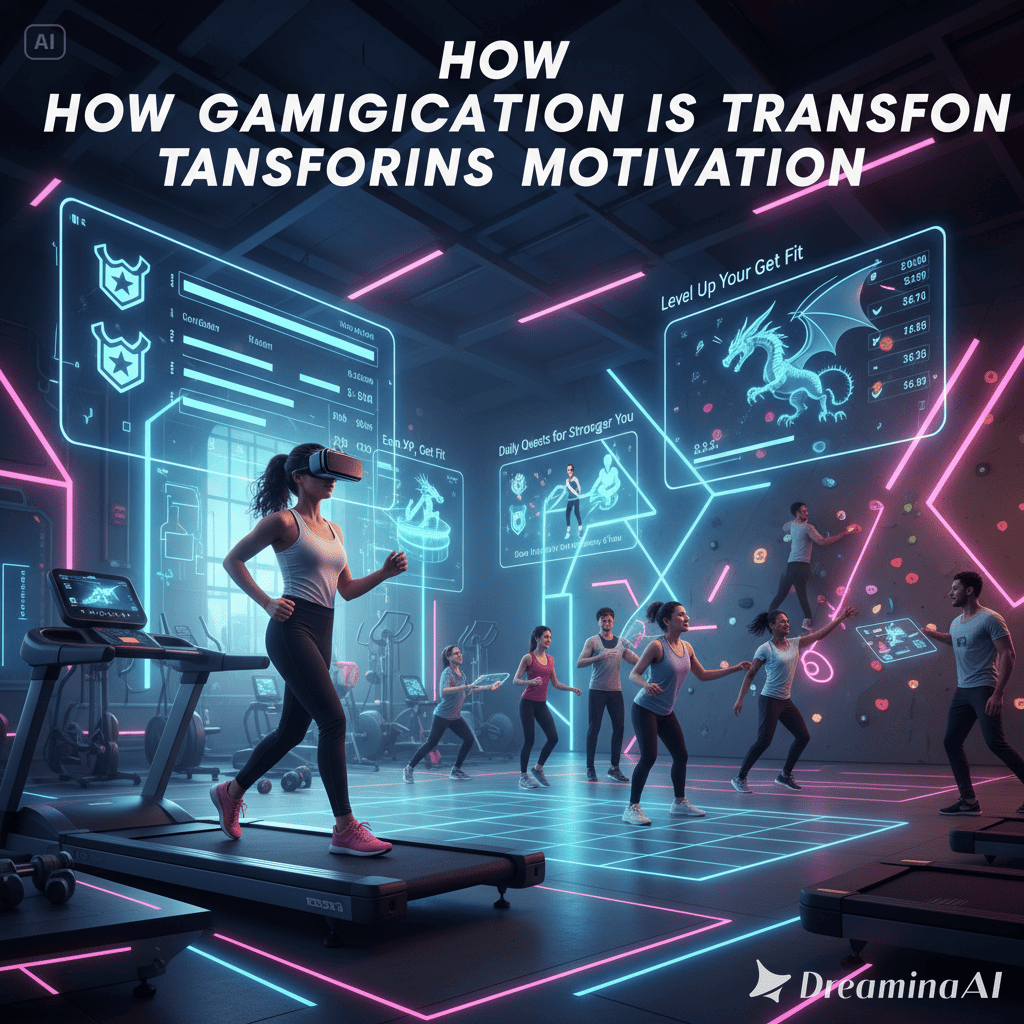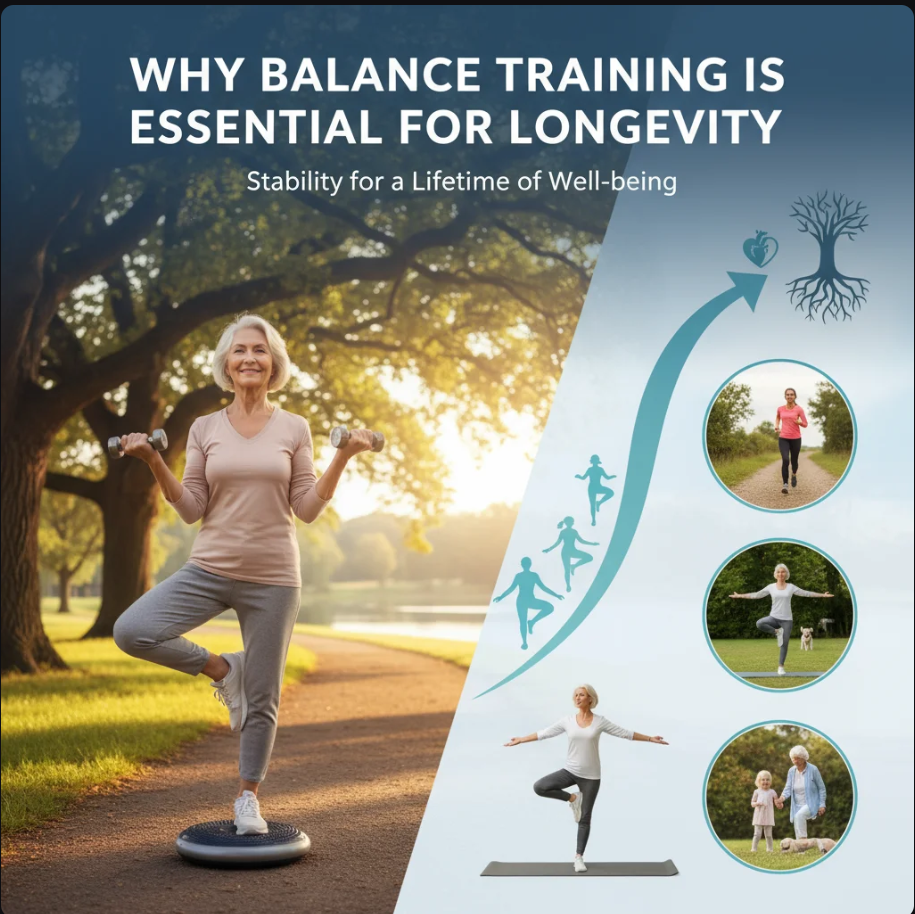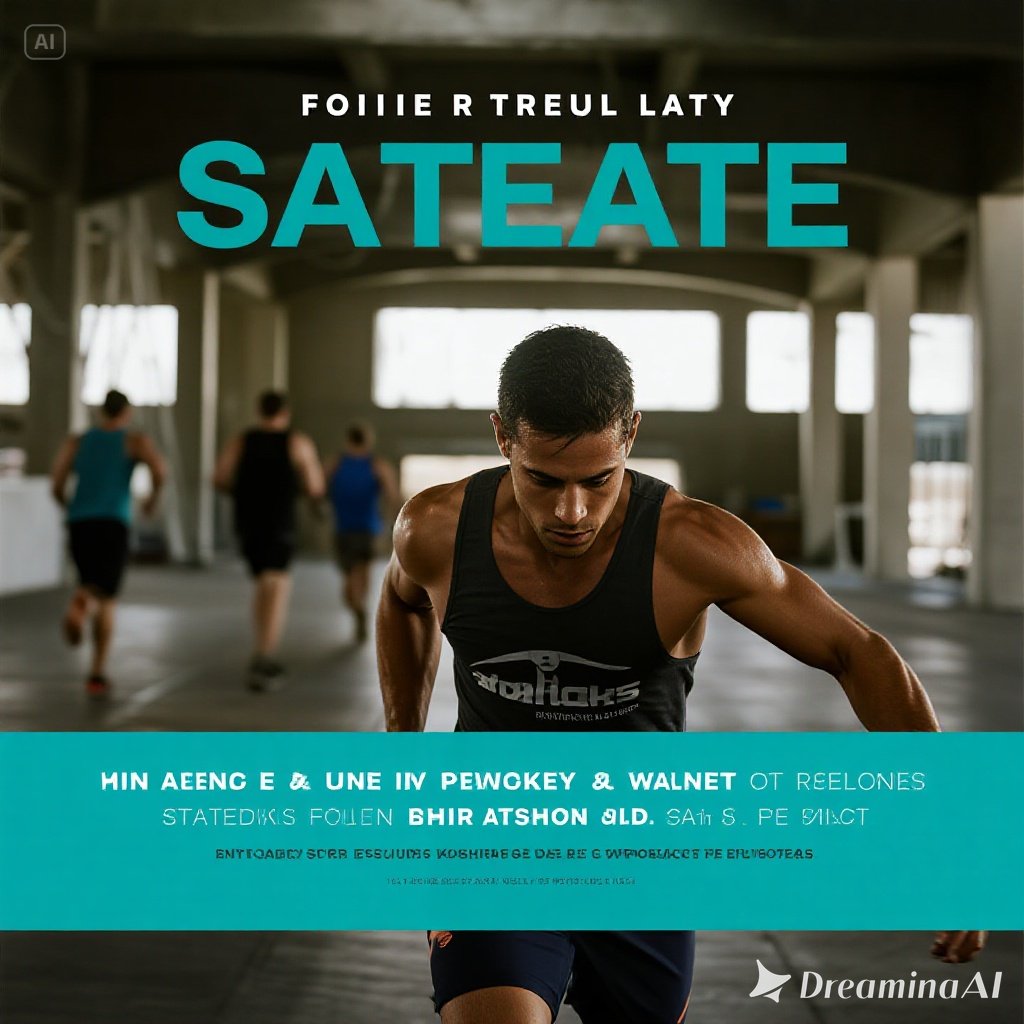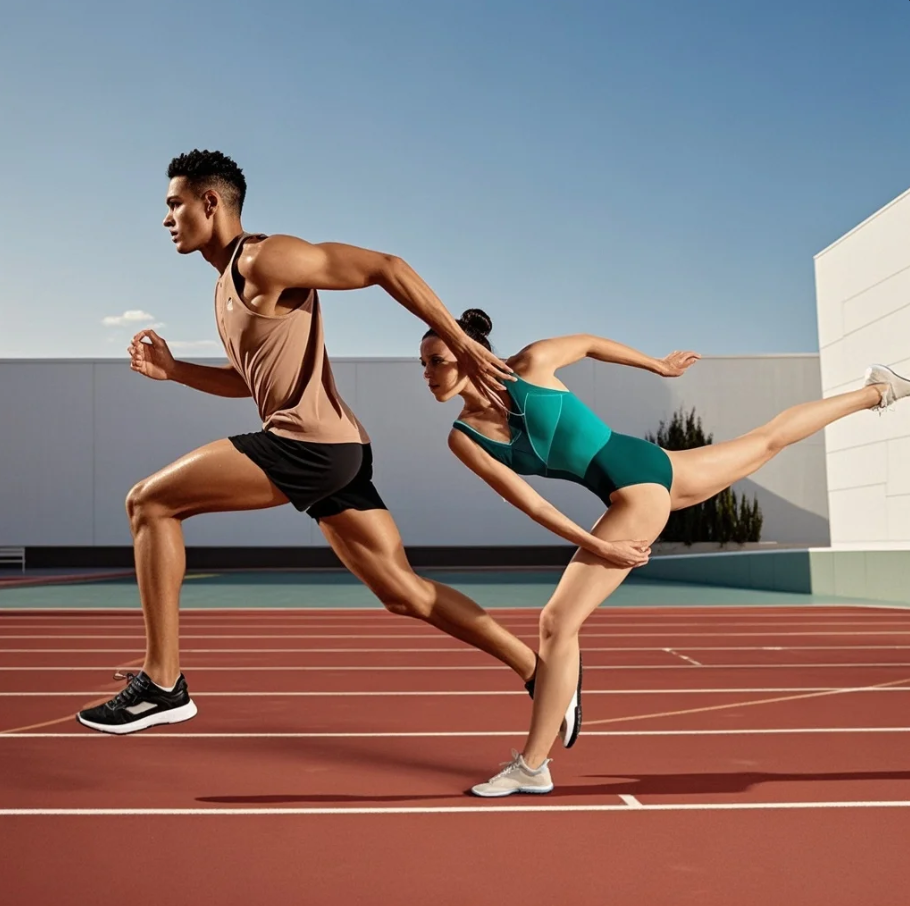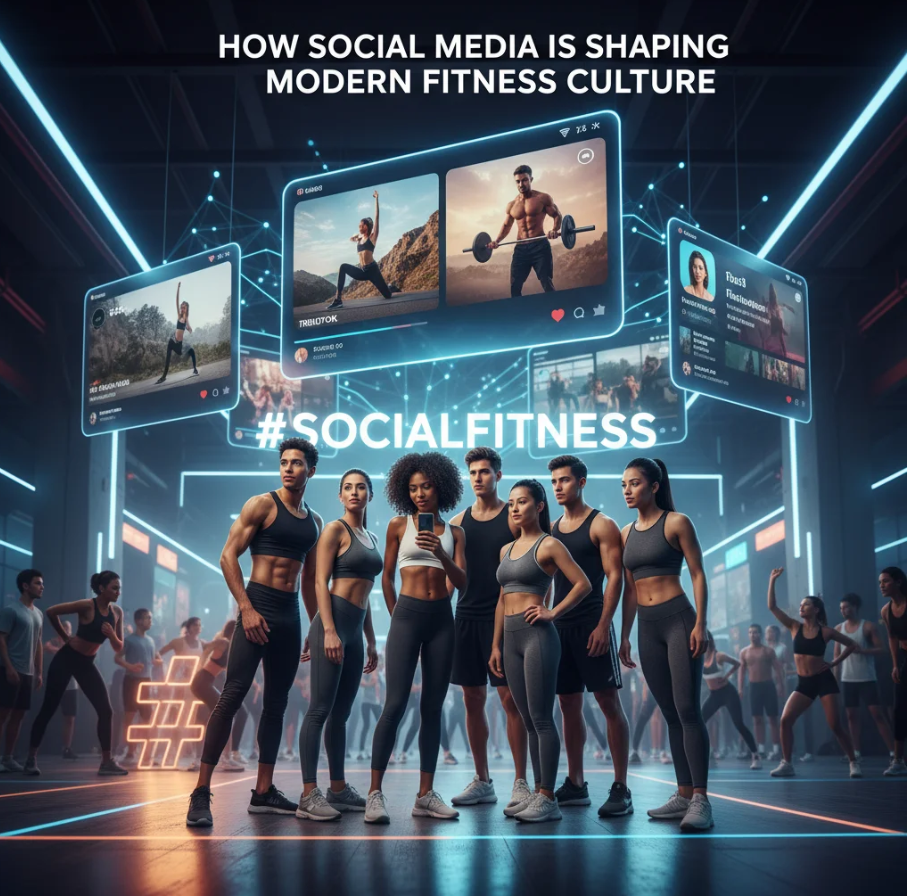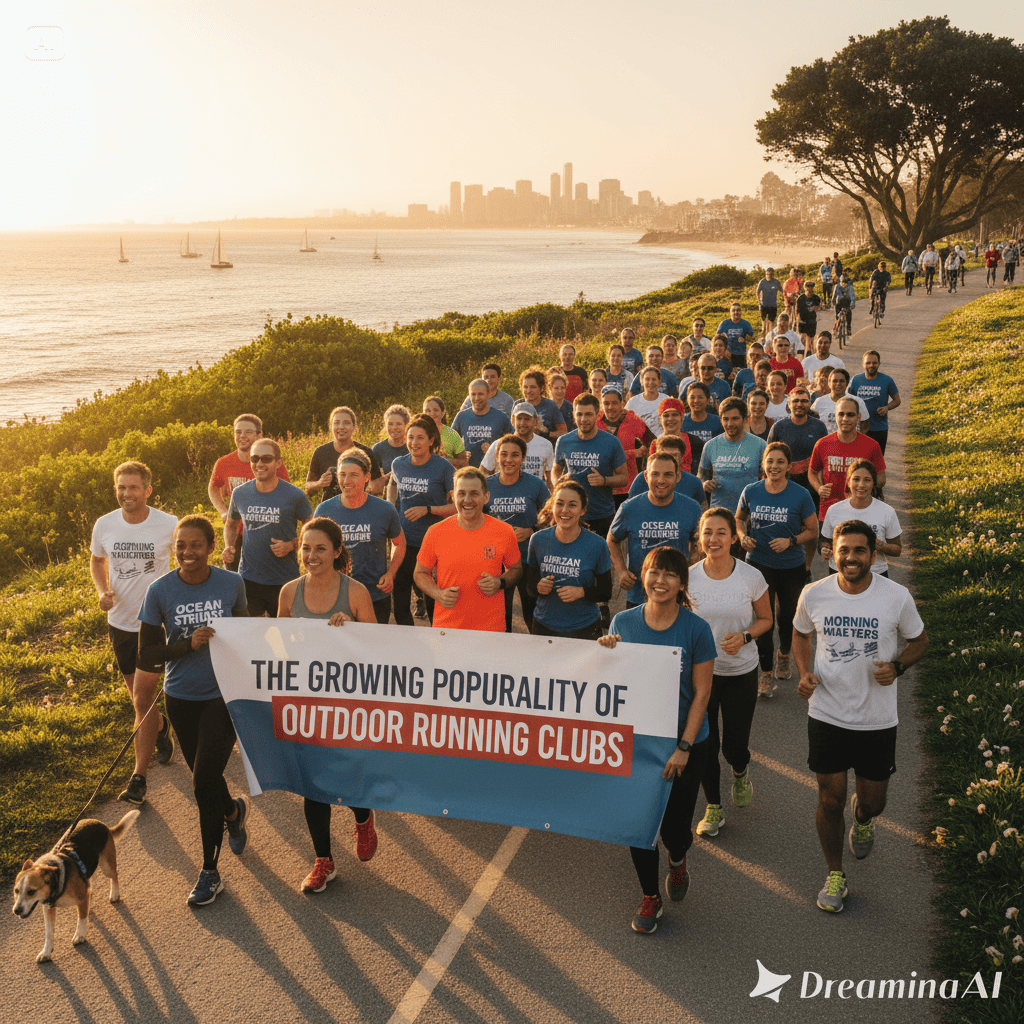Explore how social media is redefining modern fitness culture through influencers, AI, and digital communities that inspire health, motivation, and inclusivity.
Just a decade ago, workout routines were shared through magazines and DVDs.
Today, they exist in short-form videos, live streams, and AI-driven virtual trainers.
Platforms like Instagram, TikTok, and YouTube have become digital gyms,
where fitness creators share daily workouts, nutrition tips, and motivational stories that reach millions in seconds.
This transformation has made fitness more accessible — and more personal — than ever before.
People no longer train alone; they train with a global audience.
2. The Rise of Fitness Influencers and Communities
Fitness influencers have become the new coaches of the digital era.
Their content — from 15-second challenges to long-form transformation videos — inspires millions to start their own journeys.
But more importantly, they have built online communities that go beyond physical appearance.
These communities emphasize:
- Self-improvement over perfection,
- Mental health and emotional well-being,
- Inclusivity and body positivity,
- And real conversations about progress and discipline.
Through shared stories and open engagement, social media has made fitness not just a habit — but a collective lifestyle movement.
3. The Psychology of Motivation: Likes, Shares, and Accountability
Social media taps directly into human psychology.
The instant feedback loop of likes, comments, and shares provides a sense of recognition that motivates consistency.
Posting progress photos, tracking goals, and sharing challenges create a powerful system of digital accountability.
People are more likely to follow through with their workouts when they know their community is watching and supporting them.
However, this comes with a dual edge — while online validation can motivate, it can also pressure users to chase unrealistic standards.
The key is balance: using social media as a source of inspiration, not comparison.
4. AI and Smart Fitness Integration
The fitness industry has embraced AI-driven personalization,
and social media platforms are integrating these tools directly into user experiences.
Examples include:
- AI-generated workout plans based on social media activity,
- Virtual trainers embedded in fitness apps that sync with wearable devices,
- Real-time data sharing that lets users compare performance and set challenges with friends.
This fusion of AI and community engagement turns fitness into a dynamic ecosystem — one that adapts to personal goals while staying connected to the global fitness culture.
5. The Business of Fitness: Social Media as a Marketplace
Social media is no longer just a platform for sharing — it’s a marketplace.
Brands collaborate with fitness creators to launch personalized workout programs, nutrition lines, and smart gear directly to followers.
The result: a booming digital fitness economy driven by authenticity and engagement.
Unlike traditional advertising, fitness marketing on social media thrives on trust — where the influencer’s journey is the product itself.
For many, fitness has become both a passion and a profession.
6. Challenges: The Pressure of Perfection
Despite its benefits, the rise of digital fitness culture has introduced new psychological pressures.
Curated images and edited videos can create unrealistic body expectations.
The constant comparison often leads to self-doubt, burnout, or disconnection from the true purpose of fitness: health and happiness.
In response, a growing number of creators are embracing the “Real Fitness” movement,
showing unfiltered workouts, rest days, and personal struggles — reminding audiences that progress is not linear, and perfection doesn’t exist.
7. The Future of Fitness Culture
As technology evolves, fitness culture will continue to merge with digital identity.
We’ll see:
- AI-powered social gyms where avatars train together in virtual spaces,
- Wearable integrations that live-stream biometric data to fitness communities,
- And VR-based wellness experiences blending movement, mindfulness, and real-world competition.
In this future, social media will act as both the gym and the stage —
a place where discipline meets creativity, and where every individual can share their unique version of strength.
Conclusion
Social media has turned fitness into more than just a personal pursuit — it’s a cultural phenomenon.
It unites people across borders, promotes health awareness, and redefines what it means to be fit in the digital age.
But as the lines between online and offline continue to blur,
the ultimate challenge remains: keeping fitness authentic, mindful, and human.
The future of fitness culture isn’t about trends or aesthetics —
it’s about connection, purpose, and the shared journey toward better living.
Recommend :
